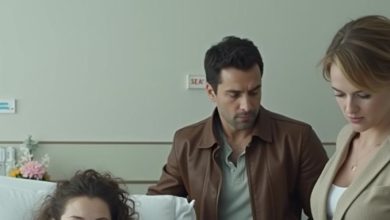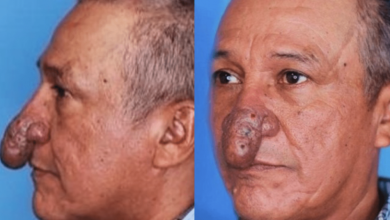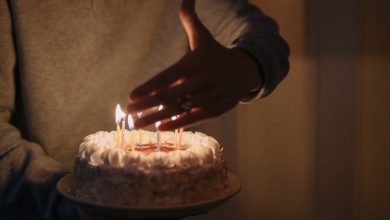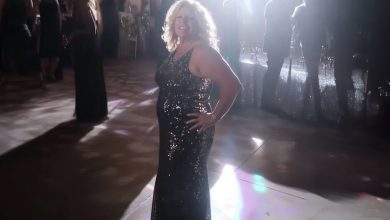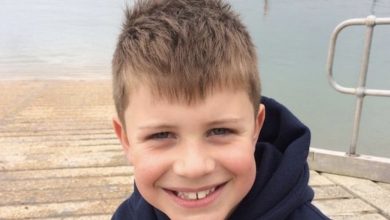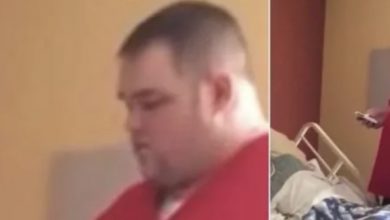My Daughter Said I Was No Longer Part of the Family Until She Opened the Envelope I Slid Across the Table and Realized What I Had Done
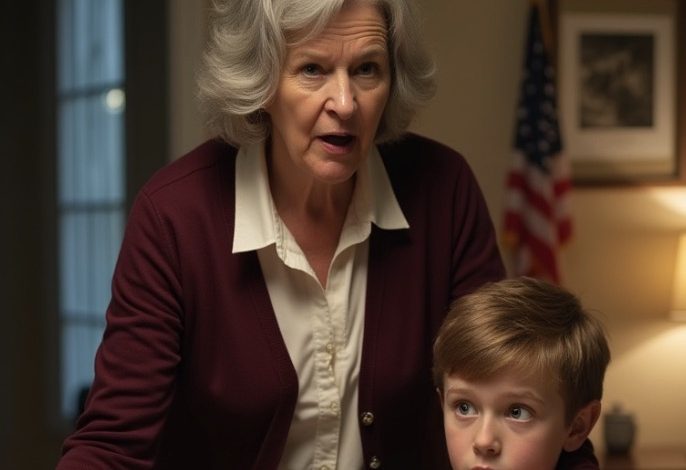
On Thanksgiving, my children pushed back their chairs and told me I was no longer part of the family. I didn’t cry or argue. I kept my voice even, reached into my purse as if I were taking out a mint, and slid a manila envelope across the polished table to my daughter.
“Here,” I said. “This is for all of you.”
A moment earlier, the house had been loud. Football murmured from the living room. Forks clicked on china. Emily and Ryan teased each other about the last dinner roll. But when Susan opened the envelope and saw what I had brought, the noise fell away like someone had cut the power. Color drained from her face. David’s jaw clenched. My grandchildren stared at the papers as if they were looking at a wreck.
In that sudden quiet I knew one thing with certainty: the easy life they had been floating on had just ended.
My name is Margaret Wilson—most people call me Maggie. I’m sixty-eight, a widow, and I live in a modest apartment in Denver. As I tell this, a cup of coffee cools on the table beside me, and the mountains outside my window are pink at the peaks. For most of my years I thought I was the kind of mother who would give her children anything. I learned I also had to be the kind of mother who knows when to say, Enough.
That holiday dinner happened three weeks ago. But the road to that envelope began six months earlier, on the day my life split in two.
It started with Harold’s funeral.
My husband of forty-five years died in May while trimming his roses behind our quiet Massachusetts house. One minute he was under his old Red Sox cap, whistling Motown and snipping yellow climbers along the fence. The next, he was on the ground between the raised beds, the garden hose still running, water darkening the soil around him.
The roses kept blooming. Everything else stopped.
The days after were a blur: black clothes, casseroles, and brochures from the funeral home. People hugged me and said he was “in a better place,” as if the best place for him hadn’t been beside me in our kitchen, arguing about whether canned cranberry sauce counted as real food.
My daughter Susan and her husband, David, did step in at first. They handled calls I couldn’t handle and kept relatives fed. My son Michael flew in from Denver with his wife, Patricia, and their twins. For a little while, sitting shoulder to shoulder on hard pews, passing tissues down the line, it felt like we were still one family.
The morning after we buried Harold, I sat alone at our kitchen table. Sunlight slid across the farmhouse sink he and I had installed five years earlier. His mug still hung on its hook. The EMT had left his glasses folded on the counter.
Susan sat across from me, hands around a full coffee she wasn’t drinking. “Mom,” she said softly, “you can’t stay in this big house alone.”
I took in the subway tile Harold and I had bickered about, the floors he’d sanded, the island where we’d drunk coffee every morning. “This is our home,” I said. “It’s where your father and I built a life. Where you and Michael grew up. Every memory I have is inside these walls.”
“I know,” she said in that reasonable voice adult children adopt when they’ve already decided for you. “You don’t have to move tomorrow. Just think about it. Four bedrooms, a huge yard… Dad handled most of it.”
She wasn’t wrong. Harold had been the one on ladders and under sinks. But it stung that my daughter could look at me and see only someone fragile.
David came in then and set an elbow on the counter. “We found a great community about twenty minutes away,” he said, sliding a glossy brochure toward me. “Independent living. Pool, activities, transportation. No snow shoveling. People your age. You could relax.”
People your age. Somewhere between Harold’s last heartbeat and that brochure, I had gone from “Mom” to “elderly.”
Over the next weeks, brochures multiplied. Tours were booked. Floor plans appeared in my texts. Each chat circled back to the same chorus: safer, easier, practical. Grief and pressure are a bad mix. I broke. I said yes.
I sold the house—our house. I signed papers in an office that smelled of toner and stale coffee, handing over a mortgage-free home to a glowing young couple with a baby on the way. They promised to “take good care of it.” I smiled and wished them well. Then I went back to an apartment that did not know my name.
The complex Susan and David chose was fine on paper: beige walls, beige carpet, beige air. The hallways smelled like cleaner and cafeteria food. My place had two bedrooms, a small balcony, and a kitchen designed by someone who clearly disliked cooking. My oak table, the one Harold refinished for our first Thanksgiving as homeowners, looked foolish crammed into the eating nook. The hutch with my china didn’t fit at all.
“We’ll store it at our place,” David said as movers wrestled it through the door. “You can visit it.”
Visit my own china. I laughed like it was a joke and let them take it.
The first month, I woke reaching for Harold and landed on cold sheets, remembering I was alone in a beige room with someone else’s nail holes in the walls. I thought missing him would be the pain. I didn’t realize how much it would also hurt to lose the life we made together.
But I am not good at staying down. Harold used to say, “Maggie can find the silver lining in a tornado.” I tried. I joined the Tuesday book club, argued about mysteries with a retired librarian named Carol, took water aerobics twice a week, and even went to a “widows and widowers mixer,” where people in good slacks pretended they weren’t lonely over sheet cake.
It wasn’t the life I imagined. But it was life. Then the money started.
One August evening I was halfway through a thriller when my phone flashed SUSAN. “Mom,” she began, bright but strained, “I hate to ask, but David’s commission check got delayed and our mortgage is due tomorrow. If we miss it, fees pile up. Could you help—just this once?”
Of course I could. What was I saving for now? Harold was gone, the house was sold, and his life insurance and pension sat quietly in the bank. “How much?” I asked. “Thirty-two hundred,” she said. “We’ll pay you back as soon as the check clears.” I believed her. I transferred the money.
The payback never came. Instead, there were new “emergencies”: a car repair that could not wait, a credit-card crunch, a dental bill, Emily’s fees, Ryan’s sports costs. “Just until things stabilize, Mom.” “We feel awful asking.” Family helps family, Harold and I always said. By November, I had sent more than thirty-five thousand dollars.
I told myself it was fine. I clipped coupons and reminded myself you can’t take money with you. Then Instagram told the truth.
One Sunday, Emily used my iPad and forgot to log out. As I went to close the app, a photo stopped my thumb: Susan and David at a white-tablecloth Boston restaurant with a champagne bucket. “Celebrating another successful quarter,” the caption read. Two weeks earlier she had cried on the phone that they couldn’t afford Emily’s application fees.
I scrolled. A Vermont spa “to recover from financial stress.” A “modest family dinner” at a steakhouse where the cheapest cut cost more than my week of groceries. A “small upgrade” that was a brand-new BMW with a red bow. All posted during the months I had been wiring them money for survival.
My stomach turned. It wasn’t about dollars anymore. It was about lies.
The next day I called Susan. “Headed to celebrate another quarter?” I asked, too sweet. Silence. “Mom, that’s not fair,” she said at last. “Social media doesn’t show everything. We’re under a lot of pressure.” “How much do you need this time?” I asked. “Eight hundred,” she said. “I swear when—” “I’ll transfer it,” I said, and hung up.
Then I looked up a lawyer: James Patterson.
His office was on the third floor of a brick building. He was younger than I expected, with kind eyes and a tie covered in tiny anchors. I told him everything: Harold’s death, the sale, the move, the transfers, the Instagram posts. His face hardened as I spoke.
“Mrs. Wilson,” he said, “this is elder financial abuse.”
The word abuse stung. “She’s my daughter,” I said. “They’re just bad with money.” “There’s a difference between bad with money and using someone,” he said gently. “You need to protect yourself.” He laid out a plan: document everything, cut off access, change accounts and passwords, and—if I chose—file complaints.
I wasn’t ready to press charges then. But I was ready to prepare.
Thanksgiving has always been my holiday. For twenty years we hosted in our old house: Harold’s cornbread stuffing, my sweet-potato casserole, football in the background. After I moved, Susan’s colonial became the venue. The Monday before Thanksgiving she called. “Mom, please don’t get mad,” she began—never a good sign. She said David’s job might be cut. Then she admitted they were already six, maybe seven months behind on their mortgage. “If we can catch up—twenty-five thousand—we can save the house,” she said. “We can’t move the kids now.”
Twenty-five thousand on top of the forty I had already sent. “I need to think,” I said. “There isn’t time,” she pressed. “You’re our only hope.”
After we hung up I cried. I cried for the husband who worked overtime so we would never fear a mortgage, for the young mother I used to be who believed love meant always saying yes, for the daughter I raised who used to bring me fistfuls of dandelions and call them flowers.
When the tears stopped, I called James. “I can’t save them without destroying myself,” I said. “Then don’t,” he replied.
The final nudge came from Emily. “Grandma,” she asked quietly, “are Mom and Dad having money problems? They say you can’t help with my college apps because you’re on a fixed income, but Dad just bought golf clubs that cost thousands. I looked them up.” Something in me reset. “Thank you for telling me,” I said. “Your future will be okay.”
I told James I was ready. He connected me with a licensed investigator named Carla. She moved carefully, spoke precisely, and pulled a clear timeline from my statements. Transfer: $3,200. Same date: upscale steakhouse. Transfer: $2,000. Same weekend: resort spa. Transfer: $1,500. Same week: BMW lease down payment. On and on. James drafted a complaint to the state attorney general. Everything went into a neat stack with tabs. It all fit in one manila envelope.
Thanksgiving morning dawned gray. I baked my casserole, covered it with foil, and dressed with intention: dark jeans, a teal sweater Harold loved, his silver necklace. If I was going to draw a line, I would look like a woman who meant it.
Susan’s house looked like a postcard—flag on the porch, pumpkin wreath on the door, an inflatable turkey on the lawn. She greeted me with a too-bright smile. Inside, the good china—my china—was set on her table. We ate. We chatted. We laughed. The conversation bent, at last, toward “the house.”
“Mom,” Susan began, “we talked to the bank. If we bring the mortgage current by Monday, they’ll work with us. This is our last chance.” David leaned forward. “Not a gift—a loan. We’ll repay you with interest. It will keep the kids in school.”
“You’re hoping I’ll give you twenty-five thousand dollars,” I said.
“Loan,” David said quickly. “Bridge money.”
I set the envelope on the table. “Actually, I brought something for you.” Susan slid out the papers, skimmed, and then truly read. Confusion slid into recognition, then shock.
“What is this?” she whispered.
“Documentation of every lie you’ve told me for months,” I said.
David paled. “There’s been a misunderstanding—”
“No,” I said. “You took thirty-seven thousand eight hundred dollars from me while posting photos of dinners, trips, and new toys—and letting your mortgage rot.”
“Mom, that’s not fair,” Susan said, voice shaking. “We were under pressure. We needed help getting through a rough patch.”
“What context makes it okay to tell your widowed mother you’re current on payments when you’re seven months behind?” I asked.
Emily looked between us. “Is this true?” she whispered.
“It’s complicated,” David said.
“It’s simple,” I said, standing. “It’s fraud. And it ends today.”
Susan pushed back her chair. “You know what? If you refuse to help, then we’re done. You’re not part of this family.”
I surprised myself by laughing—not bitter, just clear. “Then you’ll want to see the rest.”
I slid forward more pages. “A report from the investigator tracking every purchase you made with my money. And this,” I said, tapping another sheet, “is the complaint I filed with the attorney general for elder financial abuse and fraud.”
“You can’t do this to us,” Susan cried. “We’re your family.”
“Family doesn’t steal and use their kids as shields,” I said. “Since I’m apparently not family anymore, that makes you ordinary thieves.”
“Grandma?” Emily whispered, eyes wide. “What happens now?”
“I’m going home to read my book,” I said softly. “What happens to your parents depends on how they cooperate.”
David slammed his hand on the table. “You vindictive old woman! We’ll lose everything.”
“You lost everything,” I said, “the moment you decided to treat me like a mark.”
“If you do this, you’ll never see your grandkids,” Susan threatened.
I met Emily’s eyes. “Sweetheart, you’ll be eighteen soon. You’ll decide whether you want a grandmother who drew a boundary, or parents who used you for pressure.” Emily looked down, tears shining.
I took my coat. “The report recommends financial counseling,” I said from the doorway. “And maybe treatment if gambling is part of this. Listen to it.” I paused. “Happy Thanksgiving.”
The phone started at six the next morning. Susan begged. David threatened. Then both of them tried guilt. I answered none of it. At two, James called. “Their lawyer wants to discuss settlement,” he said. “Full restitution if you agree not to pursue criminal charges and a mutual no-contact clause.”
“They think no contact is a punishment?” I said. “That’s cute. Let’s hear them.”
We met Tuesday in James’s conference room. Susan looked wrung out. David looked smaller. Their attorney tried charm, then shame. James was calm and relentless. I laid out my terms: full repayment of the $37,800, a written apology acknowledging what they did, and six months of verified financial counseling—plus addiction treatment if gambling was involved. In return, I would not push for criminal charges now. Miss payments, and we proceed.
They didn’t have the money. We set a monthly plan. As they left, Susan turned. “I’m sorry,” she said. “You don’t believe me, but I am.” I held her gaze. “I believe you’re sorry you got caught,” I said. “Not sorry you did it.”
Six months later, my view is different. I moved to Denver, three blocks from Michael and Patricia. The Rockies turn gold at sunset. My oak table sits by the window. The hutch is back where it belongs, my china safe behind glass.
The settlement was signed. Susan and David pay eight hundred dollars a month. It will take them a bit over four years. They lost the house anyway; even twenty-five thousand wouldn’t have saved it. Fees and back taxes were already stacked against them. Now they rent a small apartment in a new district. Emily had to change schools in the middle of junior year. Reality is a hard teacher but a good one.
I see my grandsons often. Marcus helps me bake Harold’s chocolate-chip cookies; we fish eggshells from batter and laugh. Luke curls against me on movie nights and tells me I’m “the best hugger in Colorado.” I joined a book club and volunteer at a literacy center. Patricia dared me to try skiing at sixty-nine. I fell a lot. The hot chocolate was worth it.
A letter arrived from Emily last month. She has been accepted to three colleges, each with some scholarship aid. She works part-time and is saving the rest. “At first I was angry with you,” she wrote. “Now I understand. It feels better to earn things than to pretend everything is okay when it’s not.” She also said her dad attends Gamblers Anonymous. Those “commission delays” were sports betting. The big dinners and big purchases weren’t celebrations; they were costumes for a crumbling story.
I felt sad reading that, but not guilty.
Sometimes love looks like a casserole on a doorstep. Sometimes it looks like a check. And sometimes it looks like a manila envelope placed on a table while the football hums in the next room.
Harold used to say the hardest part of being a parent wasn’t catching your kids when they fell—it was knowing when to step back so they learned how to land. It took me sixty-eight years to understand.
Susan and I don’t speak directly now. Updates come through Michael: they’re renting, they’re working, they’re living within their means. They haven’t missed a payment yet. Some bridges can be repaired one plank at a time. Others burn too hot. You build something new on the other side.
As for me, I’m finally living the quiet retirement Harold and I dreamed about. I drive mountain roads and stop at small diners with chipped mugs and perfect pie. I spoil my grandchildren with time and stories, not expensive toys. I send Emily gas cards and recipes—and exactly zero cash to pass along to her parents.
I miss Harold every day. Grief didn’t leave; it just made space for other things. I don’t feel guilty for laughing again or for loving my small apartment with the big view. And I don’t feel guilty for protecting myself from people who tried to turn my love into their ATM.
Not even when those people are my own children. Especially then.

